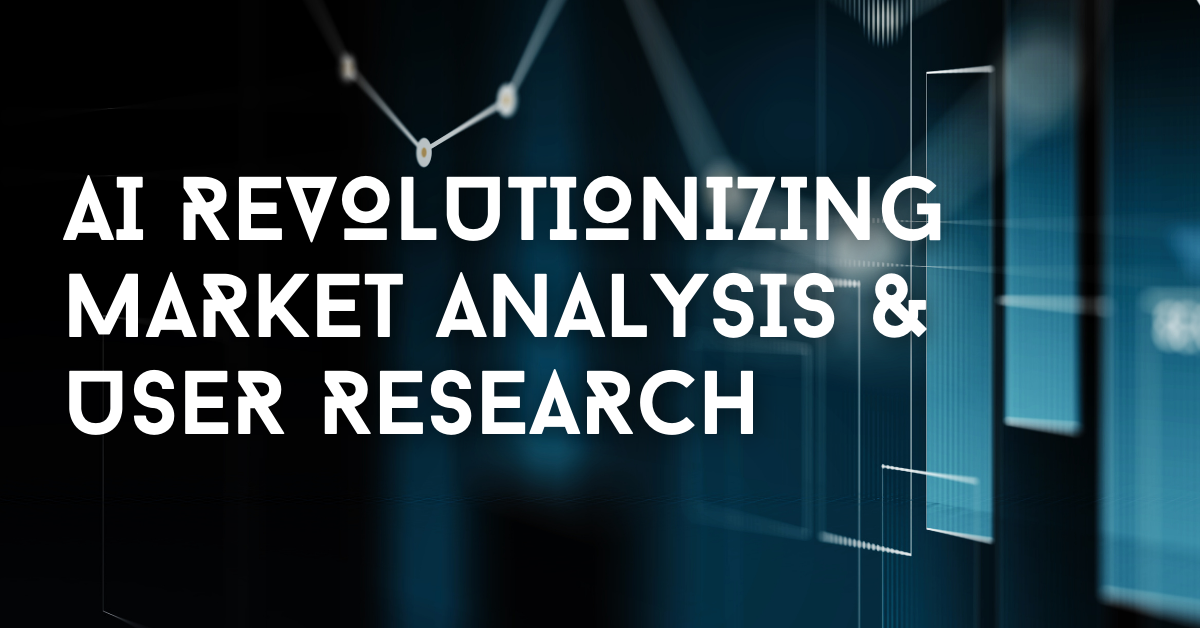Artificial Intelligence (AI) is transforming the landscape of market analysis and user research, offering unprecedented insights and efficiencies. Businesses now rely on AI-powered tools to analyze data, predict trends, and understand user behavior, all while reducing manual effort and enhancing accuracy. From startups to global enterprises, leveraging AI for research and discovery is becoming the standard for staying competitive in a fast-paced world.
How AI is Transforming Market Analysis
AI Tools Enhance Data Collection and Processing
Traditional market research often involves tedious data gathering, but AI tools have automated and streamlined this process. They allow businesses to:
· Aggregate data from multiple sources, such as social media, online reviews, and customer interactions.
· Use natural language processing (NLP) to extract insights from unstructured data like text and video.
· Employ predictive analytics to forecast market trends with accuracy.
Key Examples of AI Tools in Market Analysis:
1. Tableau and Power BI: Simplify data visualization for quick decision-making.
2. Crimson Hexagon: Leverages AI for sentiment analysis on social media.
3. Medallia: Extracts key themes from customer feedback in real-time.
These tools not only reduce time spent on manual data analysis but also uncover patterns humans might overlook.
Revolutionizing User Research
Personalized Insights for Better User Understanding
AI’s ability to analyze large datasets helps businesses tailor their user research strategies. Here’s how AI is making a difference:
1. Behavioral Analysis
AI tools track and interpret user actions, revealing deeper insights into preferences and pain points.
· Tools like Hotjar and Google Analytics 4 provide detailed heatmaps and journey tracking.
· Businesses use these insights to design products that align with user expectations.
2. Surveys and Feedback
AI-powered chatbots and survey tools like Typeform with AI enhancements improve the user experience, resulting in higher response rates.
3. Real-Time Adaptation
AI enables A/B testing at scale, dynamically adjusting elements like UX designs and messaging based on real-time user feedback.
Improving Accessibility and Inclusion
AI-driven research tools also promote inclusivity:
· Voice recognition software adapts products for diverse languages and accents.
· Accessibility checks ensure that digital platforms meet the needs of differently-abled users.
The Future of Research and Discovery
Advantages of AI Integration
As AI continues to evolve, its role in research and discovery will expand further. Businesses should focus on:
1. Automating repetitive tasks: Free up human resources for strategic decision-making.
2. Integrating cross-functional data: Ensure marketing, sales, and R&D teams collaborate effectively using shared insights.
3. Investing in ethical AI: Avoid biases in data collection and analysis by prioritizing transparency.
Challenges and Recommendations
While AI offers vast potential, businesses must overcome challenges like:
· Data Privacy: Ensure compliance with GDPR and other regional data laws.
· Interpretation Accuracy: Regularly validate AI insights with human expertise.
· Cost of Implementation: Opt for scalable solutions that align with business goals.
Conclusion
AI tools are revolutionizing the fields of market analysis and user research, offering faster, more accurate insights and empowering businesses to make data-driven decisions. As these tools evolve, companies that embrace ethical AI strategies and prioritize innovation will gain a significant competitive edge.
Ready to transform your market research and user insights? Contact us via email at innovate@elevon.io to discover how AI can revolutionize your business strategy.
Follow us on LinkedIn for updates on cutting-edge AI solutions and trends.
Sources:
1. Forbes: How AI is Changing Market Research
2. LeewayHertz:AI in market research
3. Research World: The Future of Market Research
Author: Zuzana Brendzová, Business Consultant for AI Products at Elevon.io
